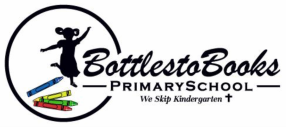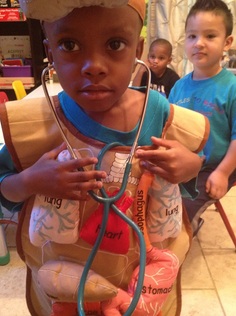Bottles to Books focuses on Biblical teaching and advanced academics. Children enjoy learning because it is presented in a structured yet fun loving way. Children learn math strategies, science and experiments, reading, writing, language development in English and Spanish, social studies, religion, and sports. Your child leaves school every day feeling more motivated and confident than the previous day. You will share in your child's education by participating in homework together. Many of the children who graduate from our preschool curriculum skip kindergarten and/or first grade. Your child will learn, grow and play in a Christian environment filled with love and gentle guidance. I believe that God was the first theorist who said in Proverb 22:6 for us to "train up a child in the way that he should go and when he is old he will not depart from it." I agree with Piaget (1958), when he says assimilation and accommodation require an active learner, not a passive one, because problem-solving skills cannot be taught, they must be discovered. I believe that children learn and discovery more in collaborative activities, as well as individual activities (so children can learn from one another). With Vygotsky (1978) regarding the much important learning by the child occurs through social interaction with a skillful tutor. The tutor may model behaviors and/or provide verbal instructions for the child. Vygotsky refers to this as cooperative or collaborative dialogue. In this case the child seeks to understand the actions or instructions provided by the tutor (often the parent or teacher) then internalizes the information, using it to guide or regulate their own performance. According to Berk (2013), information is being processed for the time it is presented to your senses when given until it is shown as a behavioral response at output, the information is transformed, encoded, and organized. This theory considers how children's brains process the information that is taken in and out. And how the child's brain interprets and displays what he or she has learned. A child's actions are constantly changing due to the new amount of information learned and encoded daily. Theorist Bronfenbrenner (1917) believed that people are influenced by their surroundings, i.e., parents, friends, school, culture, or work. I concur with his belief that the process of human development was based on the interaction between an individual and his/her environment. He calls this the ecological systems theory (human development. Bandura (1977) believes that children observe others behaving in a particular was and then pattern their own behavior accordingly. He calls it modeling. I concur with Bandura's method of modeling, and I think that it is a fantastic way to help special needs children become typically developing in some cases. I think there is no limit to how modeling can be used. For example, the school-aged child notices that when she becomes angry that her parents do not ask her to play the game anymore. I use this method constantly in my classes. I pair up children who can teach each other in a way that the other understands best. Bottles to Books Primary School is "Where Your Child Can Have A Kid's Life!"


